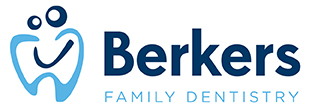The Dental Care Guide for Parkinson’s Disease Patients – Understanding and Mitigating the Risks
Introduction: What is Parkinson’s Disease & How Does it Affect Oral Health?
“Parkinson’s disease is a neurodegenerative disorder often associated with tremors and mobility issues, but did you know that it can also impact your dental and oral health too?
This April, we’ve decided to contribute to Parkinson’s disease by spreading awareness and how it affects the central nervous system in a variety of ways – including those related to dental care.
Oral health problems can also make it difficult for people with Parkinson’s disease to eat and get the nutrition they need. Poor dental and oral health can lead to pain and discomfort when eating, making it hard to eat enough or get the right balance of nutrients.
This can impact overall health and well-being.
In this blog post, we’ll explore how Parkinson’s disease specifically impacts oral health and what patients can do to maintain healthy teeth and gums despite their diagnosis.”
Common Oral Health Complications in Parkinson’s Disease Patients
The mouth is the mirror of your body, and if you have poor oral hygiene, tooth decay, bad breath issues, gum disease, etc, then you are at risk of shattering the mirror.
You should keep cleaning your body’s mirror because there are many ways that oral health and Parkinson’s disease are linked.
For example, if you have Parkinson’s disease you may have a hard time brushing your teeth or maintaining good oral hygiene habits. This can lead to a high risk of cavities, gum disease, and other oral health problems. In addition, some medications used to treat Parkinson’s disease can cause dry mouth, which can also lead to oral health problems.
People with Parkinson’s disease may also have difficulty swallowing, which can lead to aspiration pneumonia (a type of lung infection). Aspiration pneumonia is more common in people with Parkinson’s disease because the muscles used for swallowing are affected by the disease. When food or liquids are inhaled into the lungs, it can cause a serious lung infection.
Oral health problems can also make it difficult for you with Parkinson’s disease to eat and get the nutrition your body needs. Poor oral health can lead to pain and discomfort when eating, making it hard to eat enough or get the right balance of nutrients. This can impact your overall health and well-being.
Identifying Early Signs of Dental Health Issues in Parkinson’s Patients
To fight tooth and nail Parkinson’s with medicines can be exhausting. Oral health problems that are not directly related but occurring at the same time along with other dental problems at times act as early warning signs for a Parkinson’s patient’s dental health care.
The following signs could help you to identify and mitigate the risk if your oral health is starting to worsen with Parkinson’s:
- Recurring tooth loss, tooth decay, oral infection, and swallowing problems.
- Inflamed gums can signal periodontal disease, which destroys the bone-supporting teeth.
- Cracked teeth, tooth wear, changes in the fit and wear of dentures, and tooth grinding.
- Symptoms such as fatigue, anxiety, and tremor can make commuting to appointments, sitting still in the dentist’s chair, or opening the mouth wide challenging.
- Too much and too little saliva can lead to a fungal infection at the corners of the mouth.
If you want to take better care of yourself after identifying these signs, read and follow the tips below.
Tips to Take Care of Your Teeth & Gums When Living With Parkinson’s
If you are suffering from Parkinson’s or know someone suffering from the same, it could be hard to follow a proper healthcare routine, especially when it comes to dental care. Follow the tips to prevent dental damage and mitigate the risks of worsening it:
- First and foremost, try to establish a regular dental routine, if you are unable to hold the brush, use a velcro strap, or something to support the brush while holding it for better cleaning.
- Following up with regular dental checkups.
- Informing your healthcare provider about recurring oral issues.
- Keep your mouth and dentures clean, and take small meals throughout the day, as it will help your mouth to heal from the exhaustion of chewing of the previous meal.
- It is important for people with Parkinson’s to see their dentist regularly so that any oral health problems can be identified and treated early.
Good oral hygiene habits, such as brushing twice daily and flossing once daily, are also important for people with Parkinson’s. Remember to not be too hard on yourself, with the right care you can always minimize and prevent dental and oral health issues with Parkinson’s.
How to Mitigate the Risk; Treatment Options For Oral Health Problems Associated With Parkinson’s Disease
There are a few different ways to approach treating oral health problems associated with Parkinson’s disease.
The first is to try and prevent the problems from occurring in the first place. You can do it by practicing good oral hygiene, such as brushing and flossing regularly, and by visiting the dentist for regular checkups. If any problems do occur, they can be treated with a variety of methods, depending on their severity.
For milder problems, such as dry mouth or bad breath, can often be alleviated with over-the-counter products or home remedies.
More serious issues, like tooth decay or gum disease, may require professional dental treatment. In some cases, medications used to treat Parkinson’s disease itself can also help improve oral health.
For example, drugs that increase saliva production can help reduce the risk of tooth decay.
Whatever treatment approach is taken, it’s important to work closely with a healthcare team that includes both dentists and doctors in order to ensure the best possible outcome for an effective dental care.
Conclusion
Parkinson’s Disease is a disorder that affects various areas of your body, including oral health. Those living with Parkinson’s are at risk for experiencing an array of dental health problems such as difficulty speaking and swallowing, dry mouth, and even tooth loss due to low saliva production.
Fortunately, there are treatments available that can help manage these issues so those affected can continue to lead healthy lives.
It’s important to remain proactive when it comes to your oral health if you have been diagnosed with Parkinson’s Disease or know someone who has been; work closely with your dentist or doctor in order to ensure that any complications caused by the disease are addressed promptly.



Leave a Reply